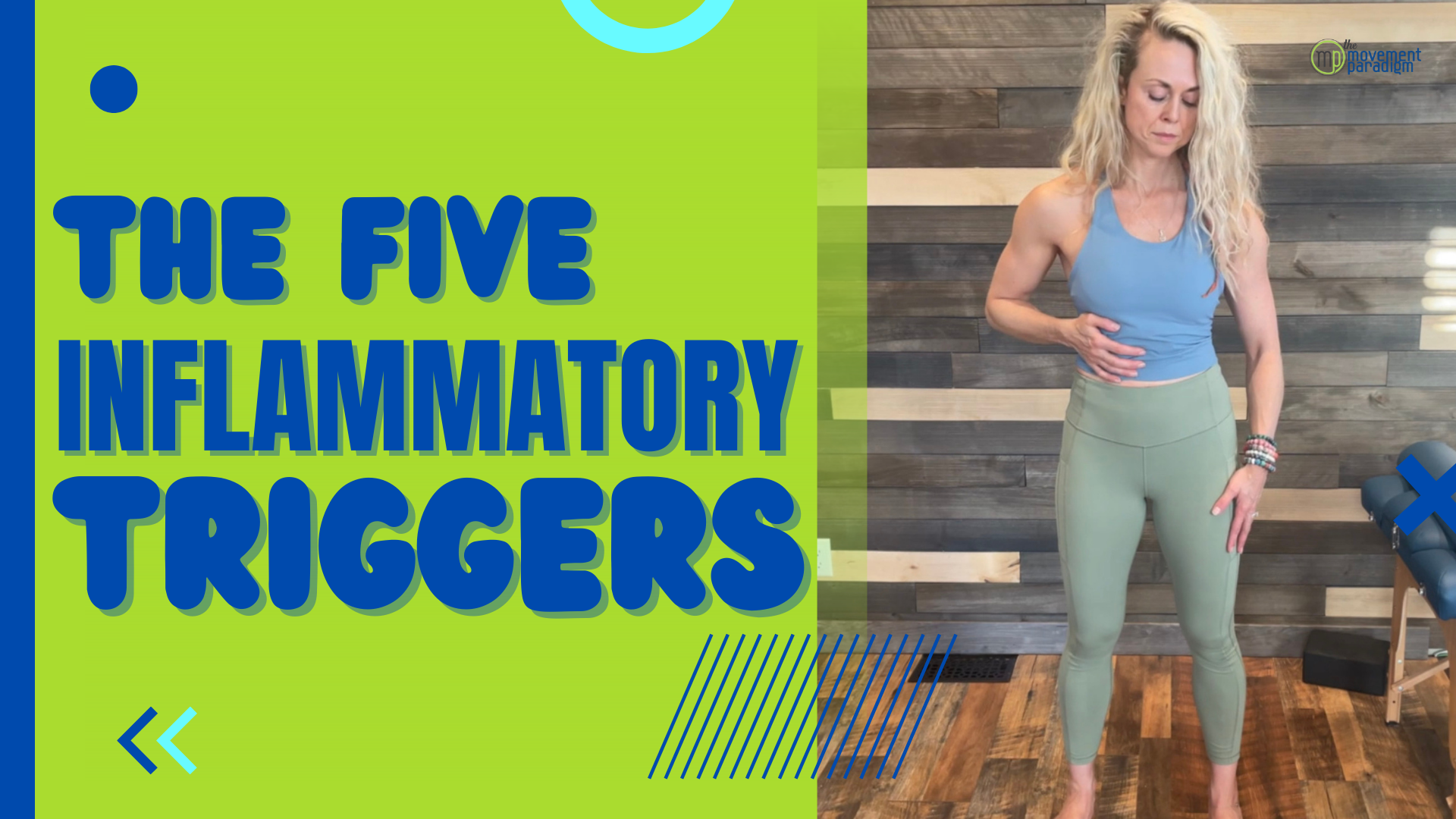Have you been dealing with some type of chronic health condition, autoimmune disease, skin issues, or even sinus issues that just don’t seem to be resolving? Here are five different categories of inflammatory triggers that you should consider exploring if you’re experiencing any or all of these things.
Rather watch or listen?
What do you need to know about inflammation?
We want to remember that ninety percent of all chronic health conditions are associated with excessive or persistent inflammation.
What is inflammation?
We want to think of inflammation as our normal defense and repair mechanism.
Let’s take, for example, an acute injury such as an ankle sprain. We may have swelling, redness, pain, loss of motion—this is exactly what’s supposed to happen in the first four to five days of your inflammatory process.
White blood cells infiltrate to help the area heal. However, if, for example, we have poor sleep, stress, and we’re eating inflammatory foods, then this could lead to more systemic inflammation. It could lead to a loss of tolerance where the ankle just doesn’t seem to improve.
Of now, all of a sudden, you experience shoulder pain or get a cold. When things keep jumping around from one to the next and it just seems like you have bad luck, that’s a perfect example of systemic inflammation. That’s when you want to look deeper to figure out what those things are.
If we want to simplify this in terms of your exploration, you can look at five different categories of potentially inflammatory triggers.
What triggers inflammation?
1. Food
This is one of the most common areas, and it’s also the easiest to explore.
We have essentially 14 different potentially inflammatory foods that are more common such as gluten, dairy, corn, soy, peanuts, etc. We also have different foods and food properties that you could be sensitive to as well—something like histamines, oxalates, or nightshades.
There are a lot of different categories of foods that could be potentially inflammatory, but I always like to start with some of the basics. The two most common inflammatory foods for people potentially inflammatory can be gluten and dairy.
It’s always a good starting point for assessing. We do want to remember with food that there are three different types of adverse food reactions—allergy, food sensitivity, and food intolerance. Any or all of these can contribute to essentially some type of inflammatory process in the body, so it’s important to investigate what those are for you.
2. Bugs
This could be something like a tick—a tick-borne illness, or a parasite, which we can see on a stool test.
If there is some kind of underlying infection that you are unaware of, this could exacerbate many of your potential symptoms. If you are evaluating all the things causing your inflammation, you definitely want to at least keep this in mind as a possibility. Also, if you’ve been traveling overseas, to other countries, and so on, you’ll want to factor that into a potential root cause.
3. Toxins
We have internal and external toxins. We are exposed to an exorbitant amount of toxins on a daily basis—that could be things from clean chemicals to plastic water bottles to mold exposure; the list is endless.
Internal toxins, like yeast or bacterial infections, can also act as toxins in our bodies. Of course, things that we might be injected with, like alcohol, are also toxins.
In this category, we can assume that we are all exposed to them. It may be to a different level for each person, and everyone’s ability to detoxify is unique. This is going to be based on a genetic predisposition, early childhood exposure, or their lifetime exposure to toxins.
We want to keep in mind that one person may be surrounded by smoke and mold their whole life but not have an issue and another person might have cancer and autoimmune disease and be unable to get out of bed. We want to really respect and appreciate the differences the individual differences between people.
4. Trauma
As it relates to trauma, we can have previous childhood trauma, emotional trauma, physical trauma, chemical trauma, or simply ongoing stress. All of these things can be explored, and really this is, to me, one of the most important aspects of addressing inflammation.
We know that ongoing stress, for example, can shift the colonization of the bacteria in the gut. This can cause dysbiosis or ongoing inflammation. We want to remember that our gut is 70 percent of our immune system. When we’re talking about immune health and inflammation, we have to talk about gut health.
5. Hormones
This can range from a whole host of issues, from thyroid issues to sex steroid issues (estrogen, progesterone, testosterone, etc.) to insulin, ghrelin, leptin, and much more.
For example, if we have a thyroid issue, eating inflammatory foods, have chronic stress, and are exposed to toxins, then we will likely have a greater inflammatory response.
The more of these things that you are experiencing, the greater the likelihood that something (or some symptoms) will become worse.
As you begin to explore your own health, try to consider these factors. This is not an end-all-be-all list, but this helps to get an idea of what might be driving some of your symptoms and also where to begin to explore so you can feel your best.
If you would like to make an appointment with us, we see people all over the world, so please make sure to reach out. We would love to set up a discovery session so that we can help you feel your best. If you are ready to take action now, schedule here: https://p.bttr.to/3Qu7wRd
Other things that might interest you:

